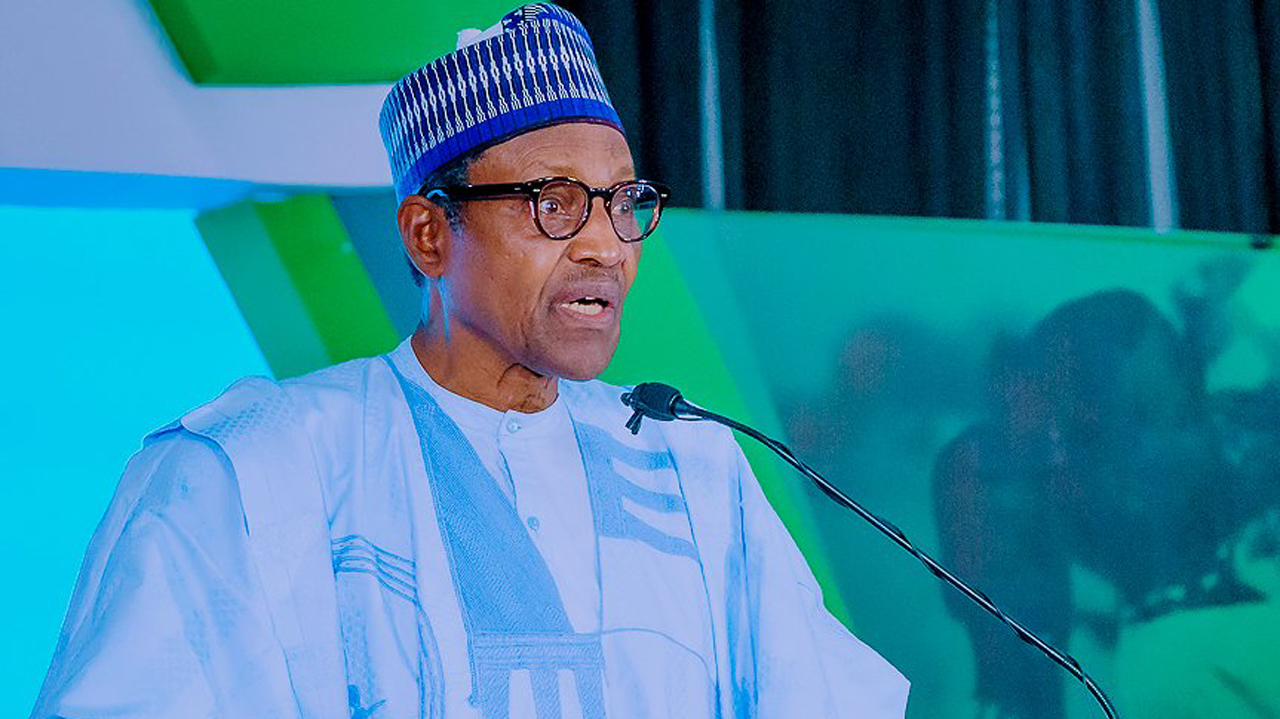The President, Major General Muhammadu Buhari (retd. ), reiterated the Nigerian government’s commitment to realising the target of 30 gigatonnes of energy by 2030 on Tuesday in Washington, D.C.
According to Garba Shehu, Buhari’s Special Assistant, the President mentioned this during a discussion panel on Just Energy Transition at the ongoing US-Africa Leaders Summit in the American metropolis.
He took advantage of the opportunity to lay forth his administration’s comprehensive Energy Transition Plan in response to climate change challenges.
“As part of the National Renewable Energy and Energy Efficiency Policy, we set the vision 30:30:30 which aims at achieving 30GW of electricity by 2030 with renewable energy contributing 30% of the energy mix. Last year, Nigeria became the first African country to develop a detailed Energy Transition Plan to tackle both energy poverty and climate change, and deliver the Sustainable Development Goal 7 by 2030 and net-zero by 2060.
“Our Federal Executive Council approved the plan earlier this year and adopted it as a national policy. As part of the plan, we intend to completely eliminate the use of petrol/diesel generators by 2060 and therefore need to deploy renewables, particularly solar, at an unprecedented scale. For instance, the Energy Transition Plan requires that 5.3 GW of solar be deployed annually until 2060 to achieve our targets,” Buhari said.
The president stressed that the Nigerian government had embarked on several reforms, one of the best in Africa, on mini-grid regulations as well as the integration of renewable energy into the national grid. He disclosed some of the reforms which had positively impacted the energy sector in Nigeria.
“Our aggressive power sector reforms have resulted in cost-reflective tariffs in the power sector for the first time since privatisation. Under the Nigeria Electrification Project, over four million people have been impacted through solar mini-grids and solar stand-alone systems. With respect to hydro, the Zungeru hydropower project is nearing completion and will add 700MW in capacity to the grid,” the president added.
While also stressing the resources that the administration had committed towards the realisation of the vision, the Nigerian leader however called for “considerable financial and technical support” to achieve the goals.
FG: Why We Are Diversifying Energy Supply
“For instance, our analysis shows that delivering the Energy Transition Plan requires $1.9 trillion spending up to 2060, including $410 billion above business-as-usual spending. This additional financing requirement translates to a $10 billion investment needed per annum. Between 2000 and 2020, just $3 billion per year was invested in renewable energy in the whole of Africa.
“Consequently, the $10 billion per year target of our Energy Transition Plan represents a significant scaling of current investment flows and we need support from the US to mobilise the needed resources. It is important to note that for African countries, the cost of finance and perceived investment risk remains significantly higher than for developed economies despite vast improvements in stability and governance. For our clean energy market to scale, Nigeria and more broadly Africa needs concessional, low-interest capital-led investments.”
Follow us on Facebook
Post Disclaimer
The opinions, beliefs and viewpoints expressed by the author and forum participants on this website do not necessarily reflect the opinions, beliefs and viewpoints of Anaedo Online or official policies of the Anaedo Online.




